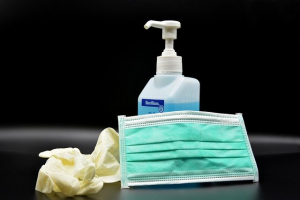 Selenium and viral infections, what do we know?
Selenium and viral infections, what do we know?
- Selenium is a micronutrient that is essential for good health.
- Low serum selenium status (below 85 microg/mL) and marginal serum selenium status (between 85 and 100 microg/mL) are common in many regions of the world, especially in many parts of Europe, the Middle East, China, and East Asia.
- Selenium status is a key factor regulating the immune response to viral infections [Hiffler 2020].
- Selenium status influences the immune system response to the severe acute respiratory syndrome corona virus infections [Bermano 2020].
- Selenium status is a risk factor that could well influence the outcome of a Covid-19 infection, particularly if the infected individuals have a sub-optimal or low selenium intake [Bermano 2020].
- Selenium supplementation may limit the severity of Covid-19 infections, particularly in regions in which the selenium intake is low [Bermano 2020, Hiffler 2020].
Evidence for a Link Between Selenium Status and Viral Infection Severity
The early evidence came from study of the Keshan Disease in China – caused by the combination of the coxsackie B3 virus and low selenium status. By adding selenium to the soil fertilizer and by encouraging the use of selenium supplements, Chinese authorities have been able to reduce significantly the incidence of the disease [Bermano 2020].
Then came evidence from mouse studies that showed that there is increased virulence to coxsackie and influenza viruses in hosts with low selenium status [Bermano 2020].
Next came evidence that low selenium status, commonly seen in HIV-infected patients, is associated with reduced numbers of CD4 T cells and with increased disease progression and death rates [Bermano 2020].

